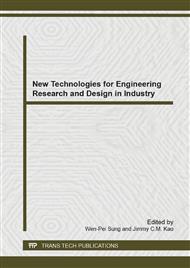p.2084
p.2088
p.2092
p.2096
p.2099
p.2107
p.2111
p.2115
p.2120
Investigation into Recognition and Evaluation of Outside-Class Spaces among Teaching Buildings in Universities
Abstract:
There remarkably exists subjectivity and selectivity in user’s recognizing and evaluating outside-class spaces. By using the outside-class spaces of four teaching buildings in certain campuses in South-China as studied samples, this paper deals with the ways to utilize, recognize and evaluate them in the aspects of recessive psychology and dominant behaviour, namely to know about the information regarding the user’s feelings - not only the situations of users but also their personal experiences. In the process of investigation, great stress was laid on acquiring the meanings and types of drawing, understanding the environmental features of the samples and collecting the present detailed information about the evaluated targets, users’ states and their individual experiences. So, it is possible for the author to devise a qualitatively analytical method to find out the using habits of varied outside-class spaces as well as the use frequencies and regular patterns in the form of languages and cognitive maps, thereby offering means of investigating and analyzing the outside-class spaces about teaching buildings, and being beneficial to the design and utilization of such spaces.
Info:
Periodical:
Pages:
2099-2106
Citation:
Online since:
June 2014
Authors:
Price:
Сopyright:
© 2014 Trans Tech Publications Ltd. All Rights Reserved
Share:
Citation:


